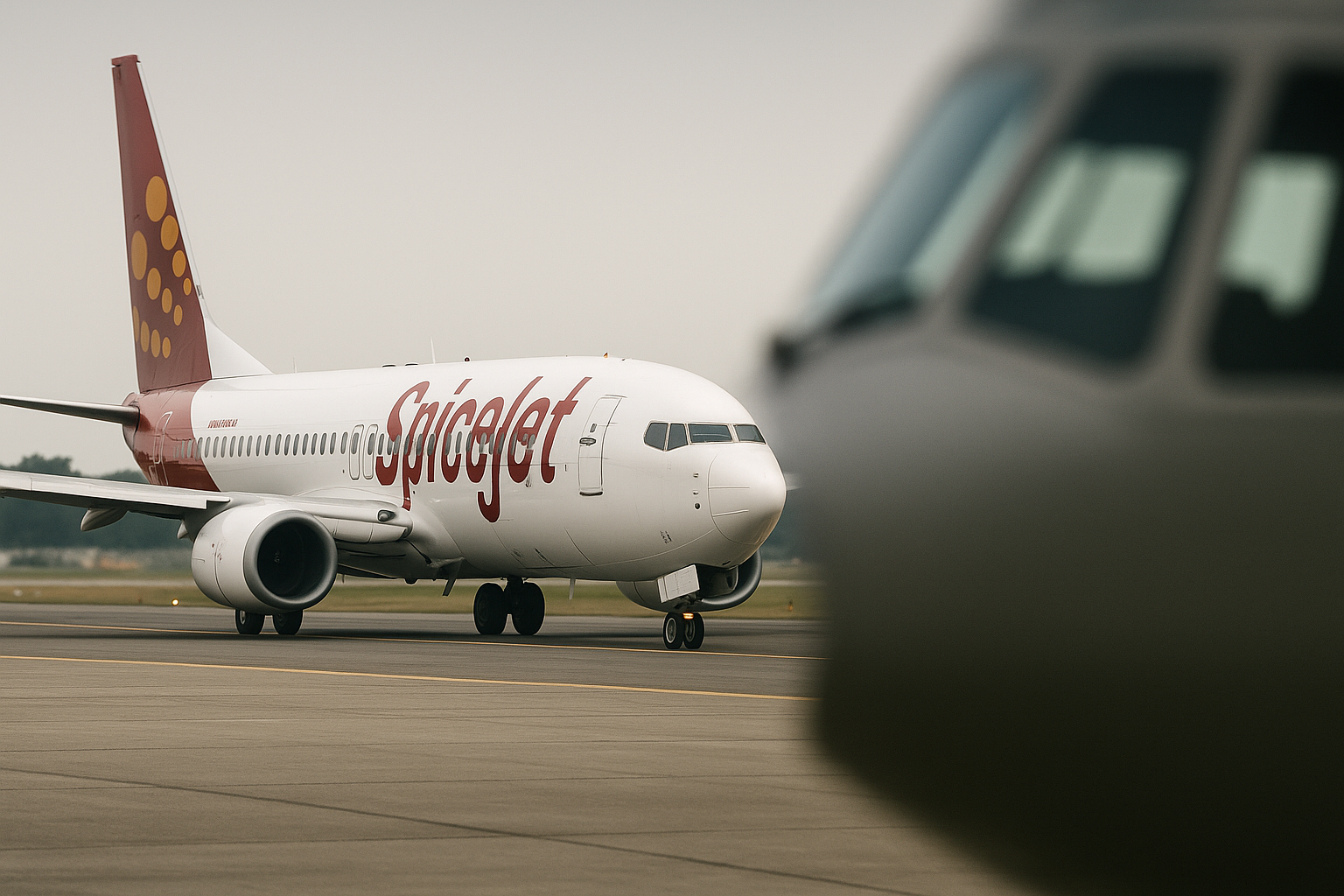New Delhi, July 15, 2025 — A SpiceJet flight from Delhi to Mumbai was delayed for hours after two female passengers attempted to approach the cockpit during taxiing. The incident triggered a security response, led to their offloading, and delayed the flight by nearly seven hours.
Timeline of the Cockpit Breach Incident
SpiceJet flight SG 9282 was scheduled to depart from Indira Gandhi International Airport (Delhi) at 12:30 PM. Shortly after the aircraft began taxiing, an argument broke out between two female passengers. According to multiple reports, the conflict escalated and both passengers ignored crew instructions, moving toward the cockpit.
Treating the behavior as a potential security threat, the pilot aborted takeoff and returned the aircraft to the terminal. The Central Industrial Security Force (CISF) was called in and the two passengers were forcibly deboarded.
Flight data shows the aircraft eventually departed around 7:21 PM, reaching Mumbai several hours behind schedule.
SpiceJet’s Official Response
The airline confirmed the incident in a brief statement:
“Two unruly passengers onboard SpiceJet flight SG 9282 (Delhi–Mumbai) attempted to forcefully approach the cockpit during taxiing. The captain returned the aircraft to bay. CISF personnel were called and the passengers were deboarded.”
SpiceJet has submitted a mandatory report to the Directorate General of Civil Aviation (DGCA), as required under Indian aviation safety protocols.
Why the Incident Has Regulatory and Safety Implications
While the passengers were not armed, their actions triggered multiple aviation safety protocols. Attempting to access the cockpit without authorization, even during taxiing, is considered a serious breach under DGCA norms.
Key safety concerns include:
- Violation of cockpit security protocols
- Disruption during a critical phase of flight (taxiing)
- Potential endangerment of passengers and crew
Aviation experts note that even non-violent cockpit interference can have serious legal and operational consequences.
Possible Consequences Under Indian Aviation Law
The DGCA has the authority to initiate investigations into onboard disturbances, especially those involving cockpit security.
Potential outcomes include:
- Placement on the national no-fly list
- Fines or prosecution under IPC and aviation safety provisions
- Mandatory behavioral training for crew on handling mid-air escalation
If the DGCA determines intent to interfere with flight operations, the passengers could face criminal proceedings.
Growing Trend of Unruly Passengers in India
This incident is part of a broader uptick in disruptive passenger behavior seen across Indian airlines. While cases vary from verbal altercations to intoxication and non-compliance, cockpit interference remains among the most serious.
Airlines are under increased pressure to:
- Strengthen pre-boarding screening
- Enable faster crew escalation without fear of backlash
- Educate passengers about zero-tolerance protocols
Industry stakeholders have called for faster processing of such cases, with real-time data sharing between carriers and regulators.
Lessons for Travellers and Aviation Stakeholders
With domestic air travel back at peak levels post-pandemic, the human factor remains a critical element of safety.
- Passengers are reminded that cockpit access is strictly regulated and protected under federal aviation law.
- Airlines must be equipped to detect early signs of conflict before boarding.
- Regulators are expected to review this case closely as part of broader passenger conduct enforcement.
This incident reinforces that aviation safety is not only about aircraft systems or crew readiness, but also about passenger responsibility and situational awareness at every stage of the journey.

